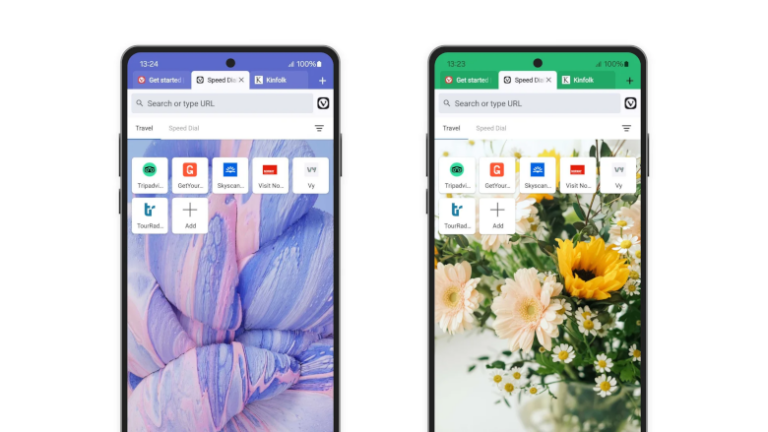80% of developers are unfit for work. You may be one of them
IT blogger Artyom Shumeiko told us which IT applicants are not suitable for work and how to create a resume that will show you in a favorable light.
Here's what the video is about:
- Artyom, senior Python developer, gives advice on improving resumes for IT specialists.
- An analysis of the labor market was carried out using the example of a posted vacancy for a Python developer, and about 500 responses were received.
- Recruiters use automatic filters to select candidates, which can lead to rejections due to lack of experience or skills.
- The importance of indicating work experience and key skills in your resume to pass the initial selection.
- A detailed description of experience and achievements in your resume increases your chances of being invited to an interview.
- The need to indicate contacts in your resume to simplify communication with recruiters.
- Cover letters should be specific and reflect the uniqueness of the candidate, avoiding templates.
- Artyom offers a course on the FastAPI framework, which will help improve skills and increase chances of finding a job.
- Statistics show that many candidates are eliminated at various stages of selection, and only a small percentage meets the requirements of the vacancy.
Below is a transcript of the video.
Have you ever wondered how employers view you from their side? Why is your resume screened out at the initial stages, never being seen by recruiters? Would you like to know what the IT market is like now and how to improve your resume to receive more invitations to interviews and more offers?
Today I will show you some visual statistics using the example of a vacancy that I posted on behalf of the employer. There will be a lot of graphs, numbers and tips. And at the very end of the video, I will show what percentage of candidates can actually apply for this place, and you will be surprised how many people dropped out at the previous stages.
Who was I looking for for a job?
My name is Artyom, I am a senior Python developer and I help backenders master hard and soft skills. A month ago, I posted a vacancy on HeadHunter on behalf of the employer and collected almost 500 responses. The vacancy is standard. I was looking for a Junior-Junior+ Python Developer and there were no special responsibilities or requirements. Everything is like in an average vacancy.
You need to be able to write a simple API, be able to work with the database, write SQL queries, and, in principle, this will be enough. And what’s most interesting is how the recruiter sees you first. The recruiter sees unsorted responses.
How to avoid falling under the recruiter's auto-filter
Usually he has hundreds of them, of course. And here he sees your last name, first name, patronymic, photograph. I hid all this for confidentiality purposes, but I see this short summary of your resume. And you may not even end up here if auto-parsing works.
Auto-analysis is an automatic filter that, based on some conditions, for example, work experience, if you have no experience, can automatically write you a refusal within 15, 20, 25 minutes. Yes, this is such a pleasant refusal that we have looked at your vacancy, but you are not suitable for us. If you receive such letters often, then most likely there is something wrong with your work experience, or some other skills that recruiters often filter by. And even if auto-analysis is not set up at your employer, you can still fall under the filter.
Look, I have only 10 unsorted responses, there are usually more of them, of course, and the recruiter presses the filters with a cup of coffee in the morning and immediately weeds out those who have no experience, and selects such, perhaps, beginners or junior-middle developers, who are ready to work in this position.
If you don’t have work experience, if you have little experience, up to a year, then most likely you will be less likely to catch the recruiter’s eye. And, accordingly, there will be fewer invitations. Next, what else is interesting? There are people who have skills that are 70-80% suitable, sometimes 100%.
And such a green block appears, which for a recruiter who, well, is not super well versed in these technologies, SQL, Git, Python and so on, this tells him something. That is, if you are 100% qualified in terms of skills, and we will then look at how this can be achieved, then you, of course, will be the more preferable candidate. And if you prove your skills, then you are simply a better candidate for the recruiter. Let's look at examples of bad and good resumes.
Errors in a resume and ideal
Let's understand what distinguishes them and what mistakes most candidates make. Here is a summary. The person does not have any experience listed. That is, he immediately falls under the auto-analysis or under the recruiter’s filters. He has a short description about me, where he indicates his Github and literally describes in a couple of words what he can do. Although he even completed some course, apparently he was not taught how to write a resume.
Let's look at another resume. The person already has experience, quite a lot, 9 months, but from it it is impossible to say what skills the person has.
That is, yes, he worked there as a Telegram bot, created a database, but what kind of stack it was, what immediate tasks he performed, what difficulties he encountered, what he achieved, it is impossible to isolate. And the recruiter cannot read your thoughts and understand what knowledge you have gained. All this needs to be described.
And let's also pay attention to key skills. Remember, earlier I showed that it matches 77%, for example. These people we are looking at now have less than 10 skills.
The most basic ones are Python, SQL, Git, PostgreSQL and so on. But the more skills you have, the greater the chance that you will fit there 80-90-100%. And statistics show, from the responses that I received, that a third of people have less than 15 skills listed, and only a quarter of people have more than 25 listed. That is, this quarter of people is much more advantageous and receives more invitations.
There are, of course, a huge number of skills. Here are the most popular ones from people who responded. The list here is much longer; it didn’t fit on the slide.
And where to find these skills? Because you can, of course, blindly copy, but there is a better way. You go to some jobs that you like.
For example, Junior Python developer at Sberbank. And look at what skills they require. Someone demands, for example, friendliness. And if you have this skill listed, you will be, well, a little higher priority for the recruiter. That is, you will have more numbers. Well, of course, it’s better not to indicate a lot of software, it’s better to indicate technical skills.
Yes, for example, JavaScript, Python. If you have heard a little about working with Redis, please mention it. You will be in a better position.
Most Valuable Conclusion
What mistake do a huge number of people still make? More than a half. They don't list contact information in the “About Me” section. Look, when a recruiter searches for you, he does not see your contacts if he has not paid money.
For example, if I am interested in a candidate who lives in Moscow, and I want to write to him, I need to pay 10 thousand rubles per day. And there are a lot of small and medium-sized businesses on the market that do not have the funds for this. And if you want you to have more invitations, recruiters write to you more often, very simple advice. Indicate your Telegram account, phone number, email in the “About Me” section.
Not just GitHub, but also how to contact you. And even if, for example, an employer purchased this access, this package for a day, it is still limited. And the recruiter may wonder if you have a controversial resume, whether you are suitable or not is unclear.
If you have a contact where you can be reached for free, they are more likely to write to you. Now let's move on to cover letters. I discuss this topic much more fully in one of the following videos, where I pretended to be a junior developer and entered the job market.
Cover letter mistakes
Now we will see what common mistakes people make. And the first mistake is huge cover letters, where everything is written very vaguely, where a person with great enthusiasm and a strong desire wants to join my company as a programmer.
This is all, of course, very cool and great, but it does not reveal you. There is no need to write huge lengthy texts. Please be more specific.
The recruiter doesn’t have time to read such a large text. Let's look at another error. There are four cover letters that were written to me.
And they are a little different, but if you look closely, they all have the same points. And in fact, all these cover letters are identical. It’s just that some online school recommends several templates to its students, and they choose them. But a cover letter is needed to set you apart from the rest, to show your uniqueness, maybe your background or your motivation to work in this company.
When a recruiter looks at hundreds or thousands of cover letters a day, believe me, he will immediately remember this template, and will understand that it is impossible to determine from it how motivated a person is or wants to work for my company. Of course, you can use templates, but please customize them to suit your needs. Make them unique, show your uniqueness and stand out from the rest.
And also don’t write 100 paragraphs of text.
Which candidates are responding?
Now let's see which candidates applied for this vacancy and who can realistically qualify to be invited for an interview. The first interesting observation is that for a third of people the experience is described very poorly. As I showed, it is described there in literally a few sentences, and from this it is impossible to conclude what you did.
It may be possible to understand which framework you used, but this is clearly not enough. Be one of the quarter of people who write at length on their resume. Let's look at this resume, for example. For example, in a person. The experience is very well described. It is written what he did in general. Then he describes what technologies he used, what marketplaces he worked with, what APIs he worked with, what he did, developed APIs, wrote tests, external APIs and much, much more.
From this description you can understand what the person did, you can understand whether he fits my specific position, perhaps my field of business activity. And also the person has a huge number of skills.
You can actually search on HeadHunter not only for vacancies, but also for resumes. And in other resumes, find the skills that people indicate. There, for example, the ability to understand someone else's code. Well, chances are you have it if you've been studying there for a few months. Indicate it, because some employers also indicate it. As for my vacancy, the situation is actually very interesting.
A little information. There are three main frameworks in Python. Django, FastAPI and one more. And most online schools now teach people Django, because it's 100 years old, everyone knows it, everything is out of the box, and, well, it's just the perfect tool for beginners to work with. But I was looking specifically for people who know FastAPI. And guess what? More than half of the people, 56%, have no indication of FastAPI at all, they have never worked with it, neither in the title of their resume, nor in their experience, nor in their skills, nor in the about me section, there is no mention of the framework anywhere.
And for a junior developer this is very important, because learning a new one is a lot of time and pain, and I need a person who already knows this technology. Moreover, interestingly, the FastAPI framework appeared not so long ago, but has already gained enormous popularity and is catching up with its older brother Django. There are now one and a half times fewer vacancies, but I am sure that in a year it will catch up or surpass even Django. But what’s sad is that there are three times fewer people who know FastAPI. That is, the demand for candidates is twice as great as for Django.
How many applicants are applying for a job?
Let's look at the funnel.
The most interesting. Well, a little more than 420 people responded, but, nevertheless, this figure was recorded. More than half of them do not know FastAPI, have never worked with it, and there are already 180 people left. Moreover, I am ready to pay a salary of up to 100 thousand rubles, and another 10 people are cut off. I need people who have at least some development experience, yes, not zero, not zero months. Moreover, there were people who had 2-3 years of experience as a developer, they were already middle or middle plus, but they still responded.
Such people are 100% not suitable for me, because they will either ask for a higher salary, well, they are simply overqualified for this vacancy. And among people whose experience is described qualitatively, that is, not in 50 words, but at least in 50, so that you can understand what the person did and whether it is worth inviting him for a vacancy, there are only 77 such people, and this is less than 20% . I am sure that if you read each of these summaries in more detail, even less will remain.
So, it's important to understand that when you see a huge number of responses, it doesn't mean you shouldn't respond anymore. If you feel your strength, your competence, respond, write a high-quality, fair letter, add skills to your resume, write in a high-quality manner, add keywords so that you are higher in the search results for the recruiter.
If you follow all these tips and recommendations, your resume will improve exponentially, you will receive more invitations, go through more interviews and receive more offers.




